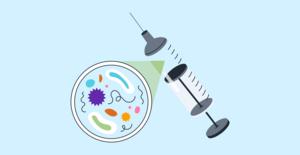Key points
- Overindulging in holiday sweets can lead to long-term health risks such as diabetes and obesity.
- High cholesterol, a risk factor for heart disease, can be exacerbated by consuming holiday treats high in cholesterol.
- Excess sugar from holiday sweets can cause tooth decay and potentially lead to depression due to spikes in sugar levels.
- Consuming too much sugar can lead to an overproduction of yeast, resulting in yeast infections.
- Overproduction of yeast due to high sugar intake can lead to uncomfortable infections in both men and women. These health risks can be avoided by moderating the amount of sweets consumed during the holiday season.

Diabetes
Type 2 Diabetes occurs when your body begins to resist insulin or the pancreas stops producing enough. This causes your glucose level to rise and build up in your bloodstream. Causes of Type 2 Diabetes include obesity and lack of exercise and poor diet. Overindulging sweets can lead to obesity, which may result in diabetes. If you already have it, eating a lot of sweets will only increase your glucose levels, causing your diabetes to become unregulated and dangerous.
Obesity
Holiday sweets and
treats contain a lot of sugar, fat, and calories, all of which can lead
to obesity. By overeating during the holidays, you risk obesity and
several health issues that come with it, such as diabetes and heart
disease. Watch yourself over the holidays and be sure not to overload
every plate. Mix in plenty of healthy snacks and beverages, and skip
seconds on dessert.
High Cholesterol
Many holiday treats are baked with ingredients that are high in cholesterol. High levels of cholesterol in your blood can lead to severe heart disease, strokes, high blood pressure, diabetes, and heart attacks. Other risk factors for high cholesterol are smoking, existing heart disease, high blood pressure, or diabetes. Adding high cholesterol to your holiday diet puts you at a greater risk for heart attack or stroke.
Tooth Decay
Eating
too many sweets and treats means consuming lots of sugar. Too much
sugar can lead to cavities, and eventually tooth decay. Even a simple
piece of candy, a cookie, or a can of soda can build up sugar deposits
on your teeth, resulting in long-term dental issues. For healthy teeth,
avoid overindulging sweets this holiday season. Brush your teeth
regularly with a fluoride toothpaste, and floss.
Depression
As surprising as it might sound, too much sugar can lead to depression. While sugar and carbs give you a boost of energy, it's only temporary. Too much sugar can release stress hormones, leading you to feel down in the dumps.
Massive spikes in sugar levels can also affect preexisting mood disorders, and increase the risk of relapse. If your body is constantly releasing serotonin from a sugar high and then crashing, it may impact your mental health.
Yeast Infection
Too
much sugar in your system can lead to an overproduction of yeast as
well. The buildup of yeast can lead to an uncomfortable infection. Women
aren't the only ones at risk. Men can also develop an infection. To
avoid this possible risk, moderate the amount of sweets you eat during
the holidays. If you do experience symptoms of a yeast infection, take a
trip to your local urgent care to get back to feeling your best.
These
six health risks can be avoided by limiting the amount of sweets and
treats you eat this holiday season. Enjoy, but enjoy smartly. How will
you stay healthy this holiday season? Share your secrets in the comments
below.
FAQs
Can eating too many holiday sweets lead to diabetes?
Yes, overindulgence in sweets can lead to obesity, which is a risk factor for developing Type 2 diabetes.
How can holiday treats contribute to high cholesterol?
Many holiday treats contain ingredients high in cholesterol, which can increase your risk of heart disease, strokes, and high blood pressure.
Can consuming too much sugar from holiday sweets cause tooth decay?
Yes, excess sugar can lead to cavities and eventually tooth decay.
Can eating too much sugar lead to depression?
Yes, consuming too much sugar can lead to temporary energy boosts followed by crashes, which can negatively impact your mood and mental health.
Can overconsumption of sugar lead to yeast infections?
Yes, too much sugar in your system can lead to an overproduction of yeast, which can result in uncomfortable yeast infections.
Can overindulging in sweets lead to depression?
Yes, overindulging in sweets can lead to depression. While sugar and carbs can give you a temporary energy boost, they can also release stress hormones that make you feel down.
How does excessive sugar consumption relate to yeast infections?
Consuming too much sugar can lead to an overproduction of yeast in your system, which can result in a yeast infection.
What are some ways to stay healthy during the holiday season?
To stay healthy during the holiday season, it's important to moderate the amount of sweets you eat. Mix in plenty of healthy snacks and beverages, and avoid overloading your plate with desserts. Regular exercise and good dental hygiene can also help maintain your health.











